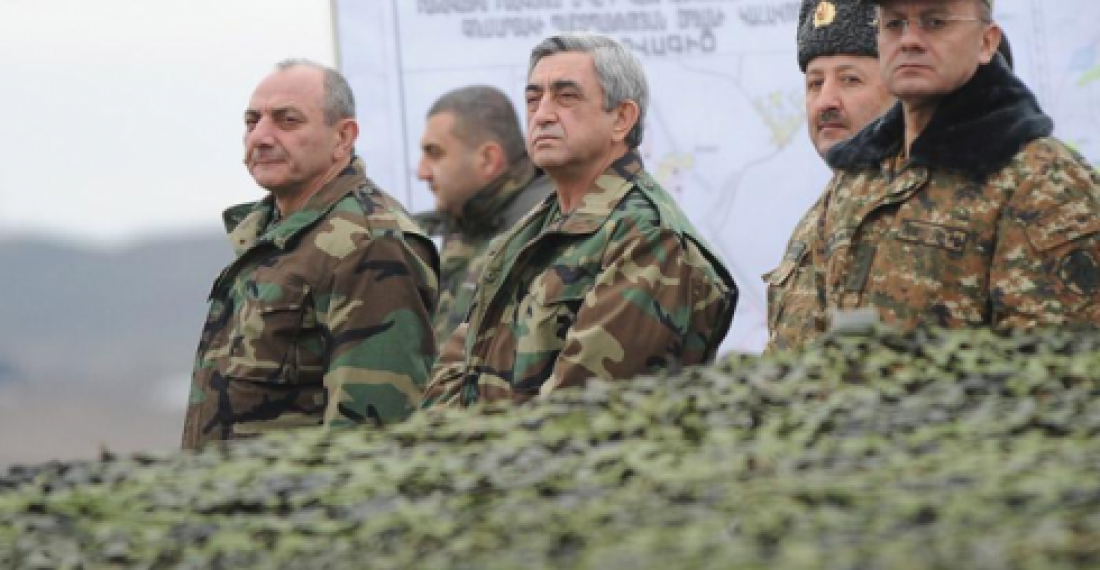The Press Service of the Armenian President reported that President Serzh Sargsyan, accompanied by the Head of the self declared Nagorno Karabakh Republic Bako Sahakyan, on 3 January visited troops in the region of Martouni in Nagorno-Karabakh. The Press Service released pictures of the two Armenian leaders, dressed in combat fatigues observing military positions on the "line of contact" seperating Armenian and Azerbaijani forces.
According to the same source the two leaders later visited a number of military units and got acquainted with life of the servicemen. On the same day Bako Sahakyan and Serzh Sargsyan participated in the ceremony of the official opening of a new “Sayat-Nova” sports complex in the regional center of Martouni.
source:commonspace.eu with the Press Service of the Armenian President
photo: Serzh Sargsyan and Bako Sahakyan observing military positions in Martuni Region of Nagorno-Karabakh on 3 January 2012 (picture courtesy of the Press Serrvice of the Armenian President)







